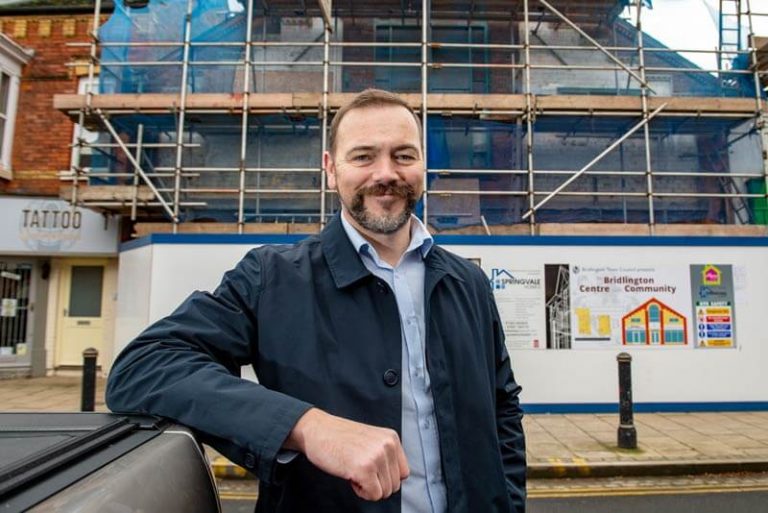Innovation and sustainability were key areas of focus at the Greater Lincolnshire and Rutland Manufacturing Conference, when delegates discussed the future of a sector contributing £5.6 billion to the regional economy.
Manufacturing conference puts innovation and sustainability under the spotlight
Government plans to foot entire pay bill for SME apprenticeships
Steelmaker secures top accolade for steel going to automotive industry
CITB labeled ‘unfit for purpose’ after publishing its latest annual report
Major, new mixed-use neighbourhood approved in Leeds
Caddick Developments, part of Caddick Group, has received a unanimous resolution to approve a major, new, mixed-use neighbourhood in the South Bank of Leeds.
To mark the planning decision, the 2m sq ft scheme, previously named City One, has been rebranded as South Village. The new name reflects not only its location within one of the UK’s largest brownfield regeneration sites – South Bank, Leeds – but also the development’s design as a contemporary urban village for modern city living.
South Village could provide up to 1,925 homes, 650,000 sq ft of commercial space and significant landscaped areas, all centred around a curated ‘village green’ the size of a professional sports field, and accessible to both residents and local community alike.
Positively received by Leeds City Council’s City Plans Panel, the scheme was praised for its potential, which would “change this part of the city altogether.”
A new place brand has also been developed to accompany the name change, which will be revealed in due course.
Lee Savage, Director at Caddick Developments, said: “South Village will offer a revolution in city-centre living, transforming this strategically located brownfield site into an ambitious and accessible new neighbourhood.
“Our proposals are incredibly exciting, having been designed to provide bold, modern architecture, significant public space and enhanced connectivity between Holbeck and the city centre.
“As we work towards submission of a detailed planning application, we will continue to collaborate closely with key partners and the community to bring forward a vibrant new chapter for this part of the South Bank.”
Johnny Caddick, Caddick Group, said: “We’re delighted to have received the resolution to approve from Leeds planning committee for this transformational new development. South Village is set to redefine contemporary urban living in Leeds, offering all the amenities of a traditional village, while being located in the heart of the city centre.
“Perfectly suited to modern patterns of living and working, South Village has been carefully designed to provide significant public realm and community space, promote active lifestyles and connectivity, and ultimately enable the creation of a dynamic, multi-generational community.”
Construction underway on new further and higher education campus in Skegness
West Yorkshire buses taken back under public control
Plans confirmed for new train maintenance facility in Shipley
“This brand new depot will support rail services while we carry out essential improvements and will also leave long-lasting legacy benefits for the town going forward.”
Rob Warnes, Strategic Development Director for Northern, said: “We’re delighted to announce this investment in our brand new TrainCare Centre for Shipley. As the future home for most of our electric train fleets for West Yorkshire, the new site will bring a wealth of highly-skilled jobs into the region, as well as providing resilience for our network across the North.“It will play a key part in helping us to deliver our plans for the Transpennine route upgrade and beyond.”
As many as 100 highly skilled jobs will be supported at the site, as well as apprenticeships. Councillor Susan Hinchcliffe, Leader of Bradford Council, said: “We welcome this major investment in Shipley, which is another vote of confidence in the district from industry and further positions Bradford as a great place to do business. “The new depot will be an important part of operating rail in the north of England, increasing service reliability for rail service users. A new state-of-the-art facility such as this is one of the many tangible improvements to the rail network we are supporting, delivering greener, more accessible trains across the north.“Increasing employment opportunities and developing skills through regeneration are key priorities for the council, so it’s great to hear that local jobs will be created to facilitate this project in the immediate term, as well as 92 permanent skilled posts being created in the longer term.”
Private equity investor supports Hull’s The 55 Group
Historic England funding to spur on multi-million-pound redevelopment of Rutland Mills
Cllr Michael Graham, Cabinet Member for Regeneration and Economic Growth at Wakefield Council, said: “We’re investing alongside Historic England and City and Provincial Properties so that the former mill buildings can be transformed into vibrant spaces for creativity. They will provide world class facilities to artists and creatives based right across the north of England.












